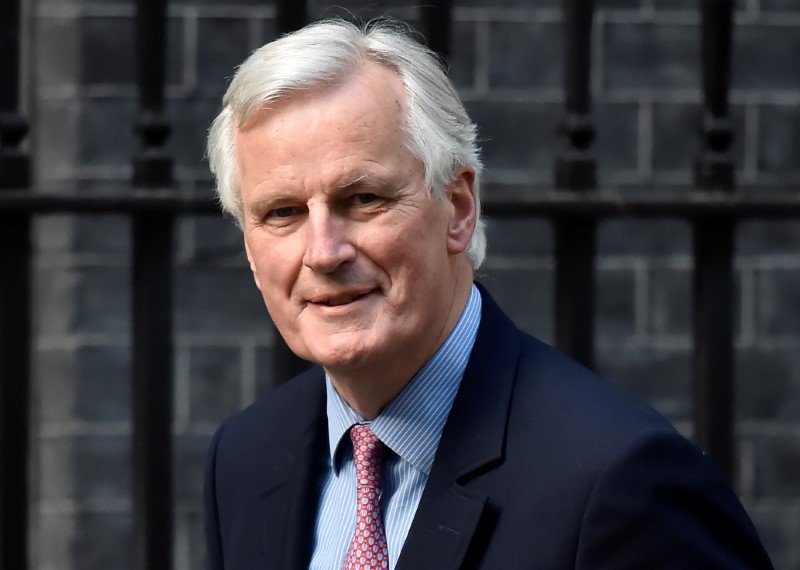LUXEMBOURG (Reuters) - European Union negotiators displayed unity as they met on Thursday to discuss guidelines for divorce talks with Britain, seeking to forestall differences that could emerge at a later stage of talks.
But comments by one German minister hinted at problems that could arise from any attempt by member states to strike separate deals with London. Another minister warned of budgetary savings that would have to be made with Britain's departure.
"We are ready," the EU chief negotiator on Brexit, Michel Barnier, told reporters on his arrival at the meeting in Luxembourg, where national ministers in charge of Brexit talks will refine draft negotiating guidelines before formal adoption by EU leaders at a summit on Saturday.
The draft guidelines reiterate the key objectives of the Brexit talks for EU states, which want progress on citizens rights, the Brexit bill and the Irish border before talks can begin on a trade deal with Britain.
"What's important for me today is that we confirm that the 27 are united on these issues so that we can have a smooth preparation of the European council next Saturday," the first vice-president of the European commission Frans Timmermans said.
That unity appears not to be in any serious doubt at this stage among the 27 remaining members of the bloc.
"It seems that at the moment we are completely united on everything," the Maltese deputy prime minister Louis Grech, who is chairing the talks, told reporters on arrival at the meeting.
Other ministers confirmed a spirit of unity. "I'm very pleased that within the EU27 there is unity on this, that we must go into the negotiations very much as one", Michael Roth, the German minister responsible for European affairs, said.
But little signs of possible future spats were evident. Roth urged remaining members not to try to negotiate bilaterally with London, stressing that "leaving the European Union comes at a price, and Britain must pay it".
Austrian foreign minister Sebastian Kurz said Vienna would not increase its payments to the EU budget after Britain quits the block, leaving it without one of its main net contributors.
"Net contributions will not go up," he insisted. "There will have to be savings."
Although this is not a matter for initial talks, his remarks showed one of the several possible divisions among EU states, which are already competing to lure banks, EU agencies and financial firms leaving London because of Brexit.

"Being united at the beginning is the easy part," one EU leader who will take part in Saturday's summit told Reuters.